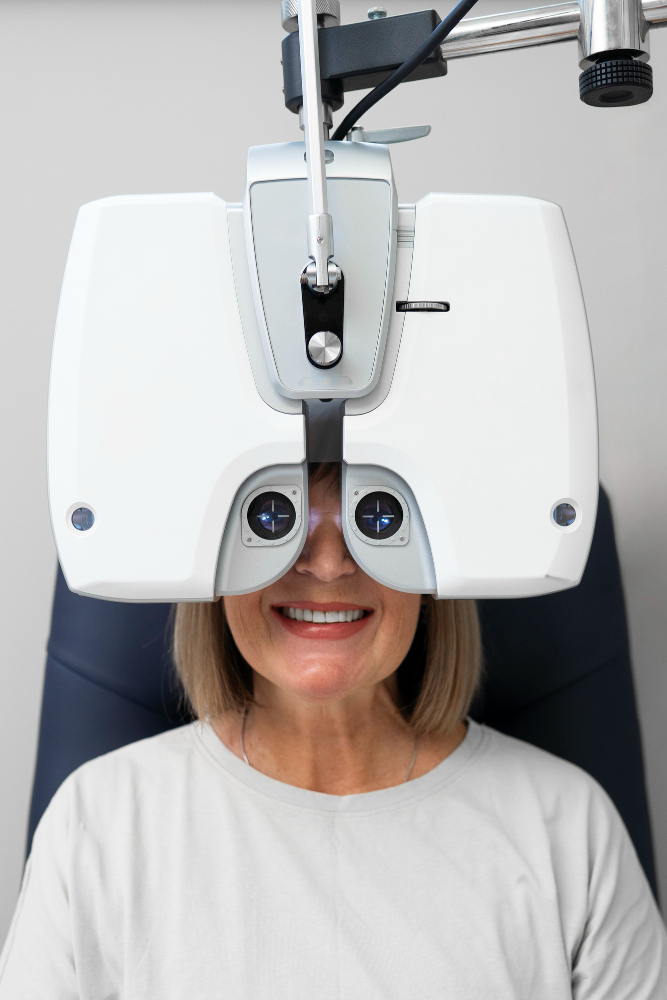Retinal Detachment

Prompt Diagnosis and Evaluation
- Comprehensive Eye Examinations: Our team conducts thorough eye examinations, including dilated fundus evaluations and visual field testing, to assess the health of the retina and detect signs of retinal detachment. Early detection is crucial for initiating timely treatment and preventing permanent vision loss.
- Retinal Imaging: We utilize advanced retinal imaging technology, such as optical coherence tomography (OCT) and ultrasound imaging, to obtain detailed images of the retina and identify areas of detachment. These imaging techniques enable us to accurately diagnose retinal detachment and determine the extent of retinal involvement.
Surgical Intervention
- Vitrectomy Surgery: For patients with retinal detachment, we offer vitrectomy surgery to reattach the retina and restore vision. During this procedure, our skilled retinal surgeons remove vitreous gel from the eye, repair retinal tears or detachments, and replace the vitreous with a gas or silicone oil to maintain retinal reattachment.
- Scleral Buckling Surgery: In some cases of retinal detachment, we may perform scleral buckling surgery to reposition the retina and relieve tension on the retinal tears. This procedure involves placing a silicone band around the eye to provide external support and facilitate retinal reattachment.
Postoperative Care and Rehabilitation
- Postoperative Monitoring: Following retinal detachment surgery, we provide comprehensive postoperative care to monitor healing and ensure optimal visual outcomes. Our team schedules regular follow-up visits to assess visual acuity, intraocular pressure, and retinal status, making adjustments to treatment plans as needed.
- Visual Rehabilitation: For patients experiencing vision loss or visual disturbances as a result of retinal detachment, we offer visual rehabilitation services to maximize functional vision and improve quality of life. This may include low vision aids, orientation and mobility training, and adaptive strategies for daily activities.
- Lifestyle Modifications: We educate patients about lifestyle modifications and visual hygiene practices to reduce the risk of retinal detachment recurrence. This includes avoiding activities that increase intraocular pressure, such as heavy lifting or straining, and protecting the eyes from trauma or injury.

